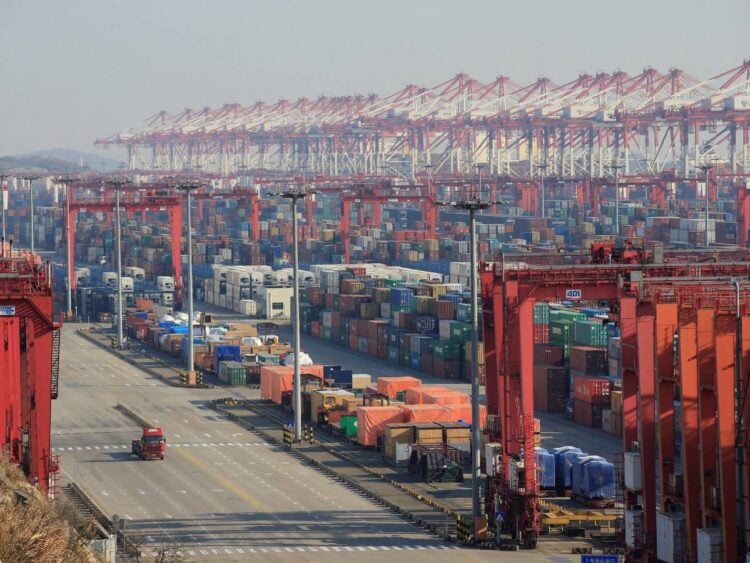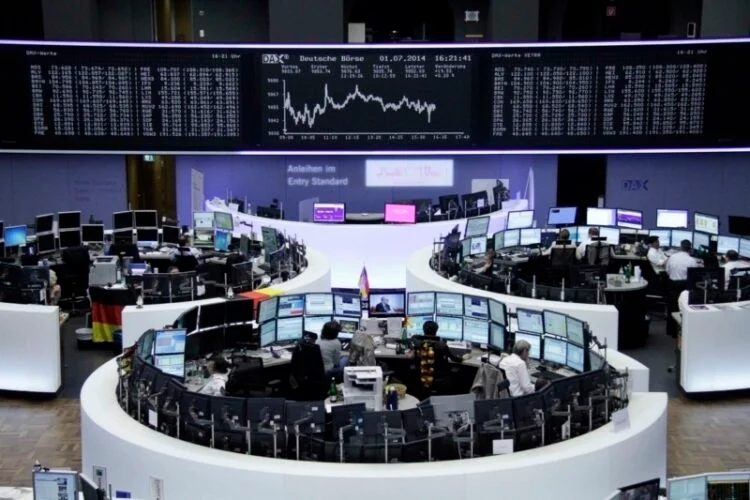Publisher: Maaal International Media Company
License: 465734
WSJ: Race to Transport Goods from China to the US After Trade Truce Announced
The Wall Street Journal revealed a race among US companies to rebook canceled orders and secure space on container ships to transport goods from China to the United States. This follows the announcement of a trade truce between the two countries on May 12, which included a significant reduction in tariffs for 90 days. This move aims to defuse trade tensions and stimulate trade between the world’s two largest economies.
The newspaper reported that the announcement of the trade truce triggered a wave of pent-up demand, or deferred demand. This refers to a situation in which consumers or businesses have postponed purchases or orders for a period of time due to economic conditions, uncertainty, or restrictions such as tariffs. Once these obstacles are removed, this demand explodes, confirming that reservations for containers bound for the United States from China have more than doubled. The newspaper reported that bookings jumped to the equivalent of about 2.2 million twenty-foot containers, a level not seen in more than a year, according to data from container tracking company Vizion and data provider Dun & Bradstreet.
The newspaper noted that executives, logistics specialists, and analysts are cautious about the strength of the expected recovery, noting that there is a great deal of uncertainty regarding tariff policy and the health of the US economy, which relies primarily on consumption, making them reluctant to increase new orders.
اقرأ المزيد
On the other hand, the newspaper noted that many Chinese manufacturers welcome any rebound in economic activity, after high tariffs led to a freeze in orders and the shutdown of production lines. In this context, the newspaper quoted Lisa Wang, a sales representative at a textile factory in China’s Zhejiang Province, as saying that the 90-day moratorium on tariffs was an important boost for her company, as it was able to ship about 12 containers of backordered orders, most of which contained mattress protectors and pillows.
Lisa Wang explained that the company is now expediting shipments because it is unsure of the procedures that will follow after the 90-day period ends.
The newspaper highlighted that shipping officials in Asia are facing challenges due to the lack of available vessels to transport goods to the United States immediately. Shipping companies have diverted some ships that normally ship to the US West Coast from China to other, more congested routes, due to the negative impact of the tariffs on trade between the two countries. Some shipping companies have also replaced large container ships with smaller vessels, while others have canceled some scheduled voyages entirely, according to shipping officials.
The newspaper noted that freight rates are currently experiencing a significant increase as importers compete for limited space, while shipping companies seek to return their ships to their original routes. In this regard, the newspaper quoted a senior logistics executive in Asia as saying, “The next 90 days will be very chaotic,” noting that rerouting diverted ships will take weeks.
However, the newspaper warned that the 90-day period may not be enough for many industries that need sufficient time to order, manufacture, and ship products across the Pacific.
The newspaper quoted Vincent Ambrose, commercial director of Franklin WH Energy Storage, which manufactures home energy storage units in California and Shenzhen, China, as saying that the 90-day duty-free period is not enough to quickly replenish inventory, as the manufacturing and delivery process typically takes about 12 weeks.
He added that the company is facing difficulty competing with major companies such as Amazon, Apple, and Mart for limited space on temporary cargo ships contracted to the United States. Under the agreement, tariffs imposed by US President Donald Trump on China will be reduced from 145% to 30%. The base tariff will be reduced from 125% to 10%, while a separate 20% tariff imposed due to what the White House described as China’s role in the fentanyl trade will remain. Industry executives say the 30% tariff still represents a barrier to trade, though not as severe as the previous 145% tariffs. Some Chinese products are subject to higher tariffs than the agreed-upon minimum due to previous tariffs, making other countries appear more attractive for manufacturing, according to the newspaper.








